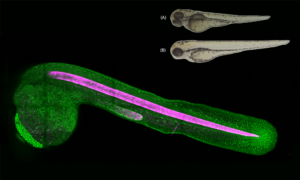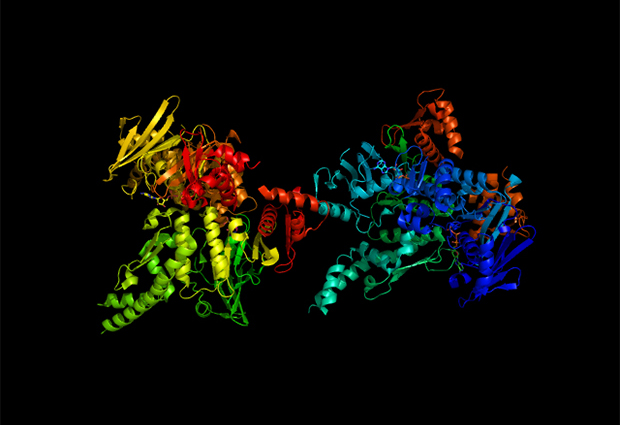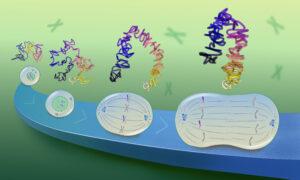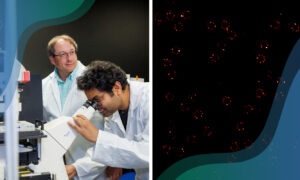
Chromosomes don’t need key protein for all their folds
New research reveals that two different mechanisms are responsible for chromosome folding

Wibke Schwarzer, a post-doc in François Spitz’s former lab at EMBL, along with colleagues at EMBL-EBI, MIT, and the Pasteur Institute has revealed that a crucial architectural protein, cohesin, is necessary for chromosomal folding on the mega-base scale but not large-scale compartmentalisation. Their findings appeared last month in Nature.
To investigate the role cohesin plays in chromosome folding in interphase, the team removed the cohesin loader Nipbl from mouse liver cells eliminating cohesin from chromatin. They found that topologically associated domains (TADs) no longer formed in those cells but despite this absence, active and inactive (A/B) compartments were still present and even reinforced. This demonstrates that cohesin is necessary for TADs to form and that the mechanism that is responsible for the folding of chromosomes into TADs is not the same as the mechanism responsible for the formation of A/B compartments. Taking this into account will enable researchers to gain a deeper understanding of chromatin organisation and gene expression.


